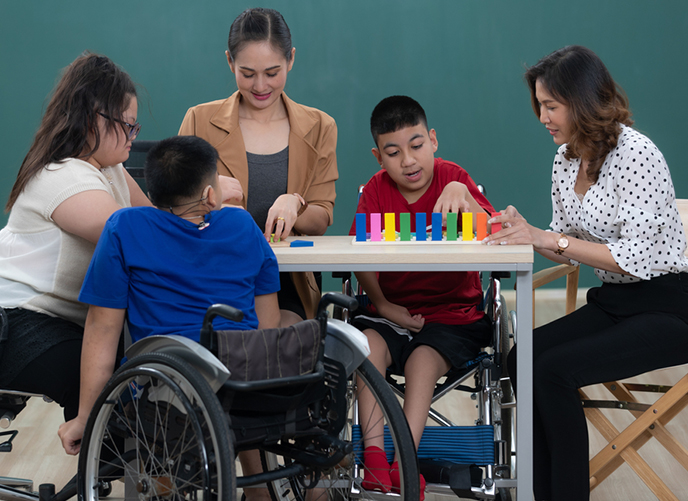What does having youth engagement in transition include?


Providing opportunities for students to be engangaged in transition planning is giving them a voice in their own future. Having students involved in their transition planning can look and be different for each student. However, the outcome of a positive post secondary future is the same.
- Student centered planning
- Student led IEP meetings
- Participation in transition assessments
How can transition team members help students take a more active role in their transition planning?
Transition team members can help students engage in transition planning by:
- Explaining the IEP process
- Asking the student what information they feel comfortable sharing and in what way
- Allowing the student to have a say in who they want to be at the meeting
- Helping the student explore and understand their disability, as well as their strengths
- Practicing role-playing in preparation for meetings and interactions
- Focusing on the student’s goals, dreams, and options

What Can Transition Planning Do For Students?
Benefits to youth engagement in transition planning includes:

Involvement in the IEP process
Understanding the IEP and transition plan and learning to take an active role and/or lead IEP meetings.

Self-Awareness
Being an active part of the planning process helps students learn more about strengths, needs, personality, interests, values, and disability.

Leadership Skills
Gaining the confidence to speak up and teach the transition team about who they are and what help is needed to reach their goals.

Self-Determination
Learning skills to compare options and chose the ones that best match their strengths, interests and needs to create a plan to achieve their goals.

Resources
Person Centered Future Planning resources sponsored by The ARC
EXPLORE MORE

Latest Events
Check out the calendar for events that may interest you.
EXPLORE MORE
Want to learn more?
Take a look at this resource on student-led IEPs.
Check out the PA Secondary Transition Frequently Asked Questions.
SEE FAQS






